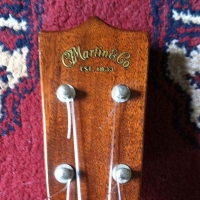DjangoBooks.com
Welcome to our Community!
Categories
- 17.9K All Categories
- 394 General
- 255 Welcome
- 10 Archtop Eddy's Corner
- 74 CD, DVD, and Concert Reviews
- 29 FAQ
- 9 Gypsy Jazz Italia
- 17 Photos
- 24 Gypsy Picking
- 3 Unaccompanied Django
- 1 Pearl Django Play-Along Vol.1
- 1 Gypsy Fire
- 21 Gypsy Rhythm
- 551 Gypsy Jazz University - Get Educated
- 104 Gypsy Jazz 101
- 175 Repertoire
- 128 History
- 88 Technique
- 39 Licks and Patterns
- Daniel Givone Manouche Guitare Method Users Group
- 17 Eddie Lang Club
- 995 Gypsy Jazz Gear
- 644 Guitars, Strings, Picks, Amps, Pickups and Other Accessories
- 315 Classifieds
- 36 Recording
- 38 Other Instruments
- 17 Violin
- 3 Mandolin
- 6 Accordion
- 3 Bass
- 9 Woodwinds
- 196 Gypsy Jazz Events
- 78 North America
- 80 Europe
- 38 International











Comments
The thing the way I see it is that the genius of Django sound is with the Quintette. But I emphasize; not Django as a soloist, the whole group.
When I first heard the Quintette in my early teens, I was immediately struck with with THE sound. It was audibly very old but so entirely new and original and infectious.
Somehow I don't think I would have had the same reaction if I had heard any of the other periods first.
After a while and after listening to all of Django's music so much, the classic Quintette sound is so familiar that it has lost some of it's initial dazzle but it still has the same ingenuity.
Lol, no.
Billy Ray Cyrus is a one trick pony. Fapy is not. Mastering and adding to a genre, and being successful in it for 40+ years does not make a musician a one trick pony. It makes them a successful musician with a genre preference. Here tickle your ears with this for a few moments.
It turned out that Django's music had everything that I relish in music, things I hadn't realised before. A good melodic vocabulary, and rhythm. To be able to swing in such a way with his sophistication just blew my mind at the time. And don't get me started on his composing skills - my god! The great tunes he made. Hearing Nuages for the first time was like never having heard Für Elise before. It was so obviously great. Manoir De Mes Reves still has one of the most beautiful solos I've ever heard in my life.
I'll admit that the sheer novelty of the early recordings is what first got me interested, as well as some of his best known WWII recordings. Nowadays, I really like some of the 1947 stuff, especially with Grappelli. I hate to say it but Grappelli's pre-war sound could get a little grating at times, but after their reunion in 1946 he was on fire!
It's very hard to choose which era I like the most, I share similar opinions to those who have already posted, but I voted post-war 1947-1953 simply because it has the most variety.
The sound quality on a few of the 1947 recordings might be off-putting to some, but I've found much higher quality copies of some of the recordings than what is offered on Intégrale. (Nuages, Daphné...) Unfortunately they're spread out on different CD's so you can't get them all in one package.
youtube.com/user/TheTeddyDupont
However, by 1953, I think he was once again at the cutting edge of jazz guitar evolution. Just listen to this:-
youtube.com/user/TheTeddyDupont
Who knows?
That version is fantastic.
When I listen to his later stuff, which is my fave period, I mostly hear Django and his ideas. Quite different from say Mile's first great quintette (sextet briefly) where the symbiosis is soooo evident.
Where would he have taken jazz and particularly guitar if he had been able to play along with Oscar Peterson, Miles, Bird, Dizzy, Coltrane, etc etc. I think perhaps at times he may have felt some frustration around that. Hard to imagine what would have come out of a quintette with Django, Bird, Dizzy and say Paul Chambers and Philly Jo Jones.